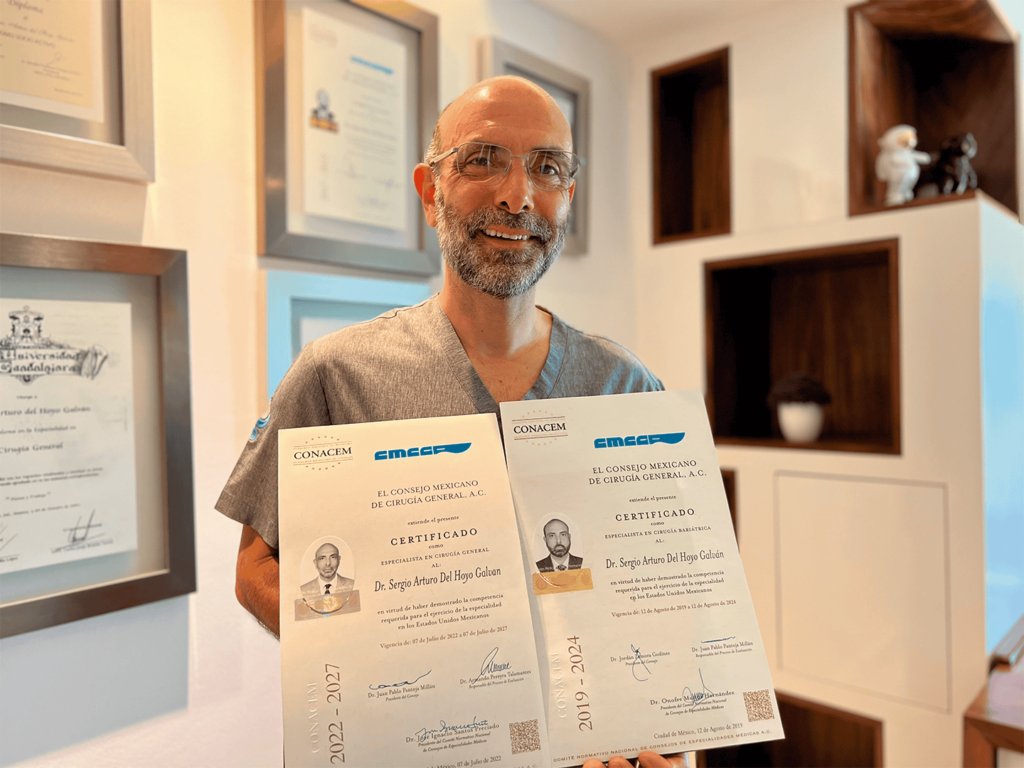Introduction
The decision to undergo gastric sleeve surgery is a significant step toward weight loss and better health. For many, it represents the hope of a life change, anticipating results that were not achieved with traditional diets and exercises. However, the post-operative reality can be surprising to some, discovering that weight loss is not as immediate or constant as they expected. This blog explores the reasons behind not losing weight after gastric sleeve and offers practical solutions to overcome this plateau, ensuring a healthier and happier future.
Why are you not losing weight after Gastric Sleeve?
It’s common to feel frustrated when the scale doesn’t reflect the effort you’ve put in after gastric sleeve surgery. You might have experienced some weight loss at first, only to find that progress has slowed down or even stopped. This plateau can feel discouraging, but it’s also a normal part of the journey for many people.
While gastric sleeve surgery significantly reduces the size of your stomach to help you feel full with less food, lasting weight loss depends on more than just the procedure itself. Long-term success requires major lifestyle changes: what you eat, how active you are, how you manage stress, and how you care for your overall health. If these areas aren’t consistently addressed, it’s possible to experience stalled progress.
Common reasons for weight loss stagnation after surgery include slipping into old eating habits, not getting enough physical activity, or underestimating portion sizes and calorie intake. Sometimes, the issue lies deeper—like hormonal imbalances, underlying medical conditions, or emotional eating triggers. In other cases, it’s simply the body adjusting to rapid early weight loss and slowing down to recalibrate.
Some of the most common causes of not losing weight after gastric sleeve surgery include:
- Improper diet: Not following your post-op nutritional guidelines can slow or reverse progress
- Lack of physical activity: Exercise is key to boosting metabolism and burning fat
- Underlying medical issues: Conditions like thyroid imbalances or insulin resistance can interfere with weight loss
- Unrealistic expectations: Healthy weight loss takes time and consistency—overnight results are not typical
Understanding these factors is the first step toward making meaningful adjustments. The journey isn’t always smooth, but staying informed and committed can help you get back on track.
Strategies to Overcome Weight Stagnation
To overcome stagnation, consider the following:
Adjust your diet: Review your eating plan with a nutritionist specializing in bariatric surgery.
Increase your physical activity: Find an exercise that you enjoy and is sustainable in the long term.
Check-in regularly with your medical team: Let them monitor your progress and adjust your plan as necessary.
Manage stress effectively: Stress can influence your weight; Practices such as meditation can be beneficial.
Diet and Exercise Review: Keys to Success
Reviewing your diet and exercise is essential to overcome stagnation. Implementing a well-balanced meal plan and exercise regimen tailored to your current abilities can make all the difference in your weight loss journey. With the expert guidance of Dr. Sergio del Hoyo, you will receive personalized recommendations and practical tools to optimize your diet and physical activity.
The Possibility of Regaining Weight and How to Manage It
Regaining weight after bariatric surgery is a valid concern. To manage and prevent this situation, it is essential to commit to long-term lifestyle changes, seek support from communities of people who have gone through similar experiences, and maintain regular follow-up with health professionals.
Is Revision Surgery Necessary?
In some cases, revision surgery may be necessary, but it is important to consider it as a last resort. Evaluating the risks, benefits and non-surgical alternatives is crucial before making a decision.
Considerations Before Opting for Revision Surgery
Before considering revision surgery, it is vital to perform a complete medical evaluation to determine the causes of stagnation or weight gain. It is also essential to have realistic expectations and be willing to commit to significant lifestyle changes. Remember that discipline, adherence to your new lifestyle, and proper nutrition are crucial for your life and your health.
Conclusion: Steps Toward a Healthier Future
Lack of weight loss after bariatric surgery can be challenging, but with the right approach, it is possible to overcome this obstacle. Committing to a healthy lifestyle, seeking the right support, and staying in touch with your medical team are crucial steps toward a healthier future. Remember, your weight loss journey is personal and unique; The important thing is to stay focused and motivated on your path to well-being.
Doctor Sergio del Hoyo, with his years of experience helping patients, has stood out for his commitment to the health and well-being of those seeking effective solutions to achieve their weight loss goals. His compassionate approach and deep knowledge of bariatric surgery make him a trusted leader in his field. Dr. del Hoyo is dedicated to providing comprehensive guidance to each individual, providing emotional support and practical resources to achieve meaningful results. With his expert advice and personalized attention, Dr. Sergio del Hoyo offers you the confidence and security you need to embark on your journey toward a healthier and more satisfying life.








